Welcome to the Global Conversations in Doctoral Preparation
Global Conversations in Doctoral Preparation is a series of on-going, online, and open access interactive web seminars presented by doctoral students wishing to present their insights and research to international audiences interested in doctoral preparation. Now going into its fourth year, web seminars address issues of interest to doctoral students as they navigate through their program. We invite doctoral students from across the globe to present and to join this on-going series of doctoral mentoring and research presentations. GCDP would like to grow its members, and create a truly global and collective space for doctoral students across the world! The mission of GCDP is as follows:
- To offer on-going, online, and open-access presentation opportunities for doctoral students to share experiences in doctoral preparation with a global audience
- To network with other doctoral students across the globe
- To learn about how doctoral students navigate through their program, design and conduct research in preparation for dissertation work, to learn about job searches and expectations of working in universities and colleges
- To support the significance of doctoral education across the globe.
- One hour presentations are open to those interested in doctoral preparation; sessions are designed to be presented individually, or as a symposium with up to three presenters
- Participation in web seminars is open access through Blackboard Collaborate, a presentation software; anyone who has access may attend these conference sessions
- Doctoral students are invited to submit a call for proposals if they would like to present on a topic of interest to doctoral students, and schedule a date/time to present
We are proud to announce the launch of our new project designed especially for doctoral students (and interested advisors/ faculty), and focused on the preparation of and research by doctoral students. Global Conversations in Doctoral Preparation has as its mission to offer open access live and archived seminars on the experiences of doctoral students from around the world, to support a network of doctoral students, and to support doctoral research being conducted in a range of spaces across the globe (https://globalconversationsindoctoralpreparation.wordpress.com). We hope that doctoral students and interested others will schedule these one-hour live seminars into their calendar. From our call last spring, we have 10 members from around the world working with this project, and who are collectively studying the role of online mentoring in the preparation of doctoral students.
If there are topics of interest that you would like to see addressed, please contact Tuba Angay-Crowder (tubaangay@yahoo.com).
Please join any of the seminars by clicking on the link below within 90 minutes of the start of the seminar (Click here for technical support if needed)
https://sas.elluminate.com/m.jnlp?sid=221&password=M.8631F22F3B67CB38E60FEA16E0B04A
(Convert to your own time zone here)
Scheduled Seminars for 2016-2017
To be announced!
Presented Web Seminars in 2014-2015
FEBRUARY 15, 2015: Rebecca Rohloff Barria; Georgia State University, Atlanta, GA; “Writing the IRB Research Protocol”; 8:00 p.m. Eastern time zone/USA (convert to your time zone).
So you’ve got a great idea for a qualitative study, located a potential research site, and hashed out the details with your advisor. Now it’s IRB time… Now what?! This presentation will guide doctoral students through writing the research protocol, from crafting the first draft to obtaining study approval, by using the presenter’s first study as an example. The presentation will focus on the key components of the research protocol (summary, rationale, objectives, methodology, data management and analysis, and ethical considerations) by addressing such things as writing style and what details to include in which sections of the protocol. For example, will the investigator video/audio record participants in the field? If so, how many devices will be used, where will they be placed, and how long will participants be recorded? Does this fit into the methodology section or under data management? Or both? Additionally, the presentation will address supplementary documents, such as informed consent forms, parental permission forms, and recruitment materials, with a highlight on working with children under the age of required assent. For example, what if a child lacks the verbal skills to convey discomfort? When, in that case, might the investigator terminate the child’s participation in the study? The presentation will include tips for writing a strong protocol and pitfalls to avoid, supported by examples from the presenter’s experience with the IRB process.
JANUARY 11, 2015: Gabriela del Villar, Albina Khabibulina, and Shim Lew; University of Georgia, Athens, GA, USA; “International Students’ Experiences in US Doctoral Programs: Expectations and Insights”; 8:00 p.m. Eastern time zone/USA (convert to your time zone).
According to the Open Doors Report on International Educational Exchange (2010), in 2009-2010, the U.S. hosted a record high of over 690,000 international students (IS), making it the top country with more IS than any other destination. In this web-seminar we will describe the personal experiences of Mexican, Russian and South Korean students in a doctoral program. We hope to provide an insight into the requirements, challenges and benefits of being a doctoral student in a US university. We acknowledge that our experiences might be different from those of other IS in other disciplines and institutions, but we also expect a lot of similarities. Below are some of the points we will address in our presentation:
- Reasons for going into a doctoral program
- What you need to know before entering a program
- Expectations for doctoral students in the US versus other countries
- Some challenges IS experience and how to handle them.
- Writing for publication
- IS’s using their international background in academia
- Choosing and working with your advisor
- What advisors need to know working with international students
 NOVEMBER 2, 2014: Dr. Raúl A. Mora, UPB – Universidad Pontificia Bolivariana – Medellín, Bolivia, South America; “Dissertating across the miles: Survival skills for international students… and their families!;” 8:00 p.m. Eastern time zone/USA (convert to your time zone).
NOVEMBER 2, 2014: Dr. Raúl A. Mora, UPB – Universidad Pontificia Bolivariana – Medellín, Bolivia, South America; “Dissertating across the miles: Survival skills for international students… and their families!;” 8:00 p.m. Eastern time zone/USA (convert to your time zone).
OCTOBER 5th, 2014: Andrew L. LaFave, University of Southern California, CA; “Scrivener, Process, and Finding Art in Academic Writing!” 8:00 p.m. Eastern time zone/USA (convert to your time zone). This presentation will provide students with concrete strategies to improve the quality of their academic writing. Based on my own experience developing my voice as an emerging scholar, I offer an overview of an all-in-one research and writing application called Scrivener1. Scrivener was originally developed for screen writers and novelists, but the program’s capacity to organize and store literature-based research coupled with an easy-to-use nonlinear word-processing function makes it ideal for academic use. After the overview, I provide a variety of strategies for organizing a writer’s thoughts, including mind-maps and outlines. I conclude with several suggestions for how to avoid the opaque drudgery that weighs down so much academic writing, and provide some guidance on how to turn students’ writing from dreary academic lead into artful, literary gold. Please visit his archived web seminar here: Scrivener, Process, and Finding Art in Academic Writing!
APRIL 26, 2015: Jennifer L. Nigh – “Meeting in the Middle: The Mixed Methods Paradigm” – Kent State University, Kent, Ohio – 8:00 p.m. Eastern time zone/USA (convert to your time zone).
This presentation will provide a foundational understanding of the third research paradigm, mixed methods. To provide this foundational understanding, the presenters will describe their professional experiences and the contrasting worldviews that they come to their research with. She will then argue for the use of mixed methods as a methodological tool for merging those experiences and worldviews. She will further demonstrate how mixed methods research is both rigorous and robust and can be a viable option for cross-disciplinary, team-oriented research.
MAY 3, 2015: Nicole Pettitt & Molly Friesenborg – “An introduction to community-engaged research”; Georgia State University, Atlanta, GA and Director of Programs at Girls Inc. (respectively); 8:00 p.m. Eastern time zone/USA (convert to your time zone).
Many doctoral students find that their research interests take them beyond the borders of their institutions and into their surrounding communities – after-school programs, non-profits, faith-based organizations, and more. While many community-based organizations and PhD students could benefit greatly from research partnerships, practical training in community-based research is difficult to come by in most PhD programs. This seminar is intended as an introduction for PhD students interested in conducting research in community-based settings, as well as current or potential community partners.
- The continuum of research ABOUT a community, research IN a community, and research WITH a community
- Building inclusive community relationships that benefit both partners
- Negotiating competing or conflicting demands and investments in community-university partnerships/research
- Navigating timelines and common stumbling blocks
- Research ethics: important questions — including language(s), literacy, and the IRB
- Resources for moving forward
MAY 17, 2015: Kim Foster, Kyle Jones, Nick Thompson – “From the Water Cooler to the Firehose: Teaching Our Way through an English Ed Doctorate” – Kennesaw State University, GA, USA; 8:00 p.m. Eastern time zone/USA (convert to your time zone).
- Kim Foster
- Kyle Jones
- Nick Thompson
As literacy educators, we have varying teaching experiences in our separate school buildings on a daily basis. Some of the interactions with our colleagues and administration are positive and engaging while others are stifling and lackluster. A short fourteen months ago, each of us chose to return to a doctoral program for various reasons, yet the common denominator was that we wanted more out of teaching than what we were experiencing. The first English class we had together, our professor frequently posited the phrase, “It’s like drinking from the firehose” to describe our sudden immersion into the field of literacy theory and research. Pursuing a research-based degree while continuing to practice as full-time educators has presented us with certain insights and tensions in both of these arenas. We hope that pursuing research makes us better teachers, likewise we think that teaching helps to inform our research, but sometimes they get in the way of each other. This discussion will focus on the pressures, the tensions, and–perhaps most importantly–the growth we have experienced as teacher-researches.



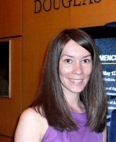
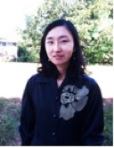
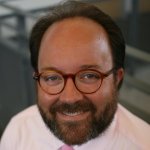

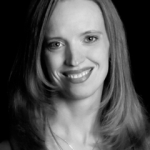
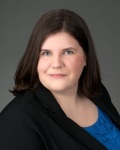







Many thanks to Kamania, Natasha and Tarika the great presentation! Thank you Dr. Albert! I look forward to following presentations
LikeLike
Thank you to Kamania, Tarika and Natasha for presenting a wonderful session on the Program of Study, the Residency Plan, and the Pre-qualifying Phase! Well done!
LikeLike
Thank you to Dru Tomlin for a wonderful presentation last night on “Preparing for Comps.” Please join us on Oct. 13 for Heather Lynch who will present her insights into “Writing and Defending the Prospectus.” Also, please add comments to support our doctoral students who are presenting, and offer ideas for new web seminars that you would like to see!
LikeLike
Thank you to Dru Tomlin for his useful presentation! He provided a lot of information and his insight for the preparation process in comps. I notice that I miss much information while I try to take notes while listening at the same time. Because the power point slides are provided for us, I will pay more attention to what the speaker says next time I participate in the presentations. Thank you again!
Tuba
LikeLike
Dru,
I found the presentation very informative and timely, as I prepare for Comps in the spring.
Well thoughtout and practical ideas. Thanks. All the best.
Annmarie
LikeLike
Thx Heather for a great presentation last night!
LikeLike